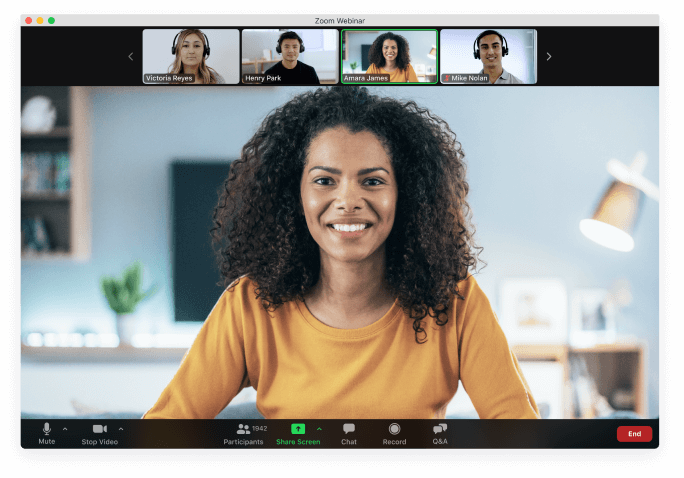
by Earl Murtagh-Naughton – Head of Marketing

Hosting a virtual event can be a daunting task for companies and organisations, but it doesn’t have to be the case. Here at IMS, we have compiled 10 Top Tips that will help you ensure your virtual event is successful and leaves everyone with an amazing experience.
1. Set Clear Goals From The Start
Prior to the planning of your Virtual Event, make sure you know why you are hosting the event. Set SMART goals, and make sure the whole team in charge of the project understands what you want to achieve.
2. Choose the right platform to host your virtual event
Zoom can allow you to connect with large audiences from anywhere in the world and from any device using their Zoom Webinar platform. Events can scale upwards of 50,000 including 100+ video panelists always with excellent audio and video quality. The platform also has customisable setup, registration, and live streaming which you can broaden your reach with internal and external audiences.

3. Choose the right time for your event
You want to take into account how many people will be able to attend, whether or not they’re in different time zones and how much time you need for Q&A.
Remember: Different countries have different holiday schedules!

4. Promote your virtual event
Don’t expect on an audience coming to you – make sure you advertise your event well in advance so attendees know when it’s happening and how they can register to attend.
5. Develop a clear agenda that includes speakers and timeframes
You don’t want your attendees to be waiting around for long periods of time. Provide a clear agenda with the timings clearly marked and include any relevant links needed, so that attendees can plan ahead. This will ensure their is a flow to your event and it delivers the best experience to attendees.
6. Include moderators at your event
You also want to make sure you have enough moderators on hand during your virtual event in case things go wrong for technical reasons or otherwise. The will give continuity to the events in situations like this,
7. Engage your audience
Your audience doesn’t need an “hour lecture” – instead, plan activities for the Virtual Event that involve active participation. Encourage your participants to use the “Raise Hand”, “Polls”, “Q&A” features within Zoom for example.
8. Prepare to troubleshoot
Just in case there are any technical difficulties with your video or audio, always test your headset & microphone to ensure they are working prior to the Virtual Event – all of the panelists should do the same. It is also important to check that your internet connection is stable and reliable for the duration of the event – having a backup internet connection is always a plus.
9. Send out a post-event follow up
Always communicate with your attendees after the event about how they can get access to recordings of the event. This will also encourage them to join again next time! But also to send them a post event feedback form whilst their experience is still fresh in their minds.
10. Debrief
Once the virtual event is over, its very important take some time to connect with your team and go over what worked and what didn’t. That way, you will be better prepared for your next virtual event!
At IMS, we can help you create a more consolidated event programme with the best technology at the forefront for large or small events, virtual or in-person events either in-house or externally. We can help create a platform where you can engage with attendees and sponsors and get all the information you need.
So if you’d like us to help you to set your event up for success:




